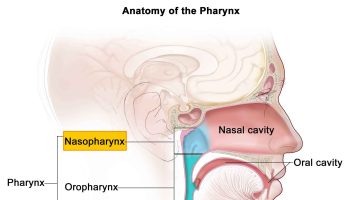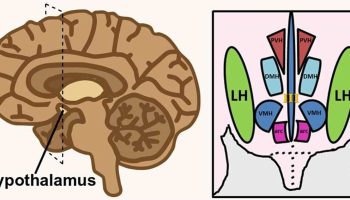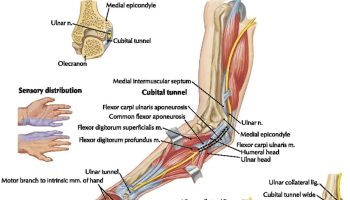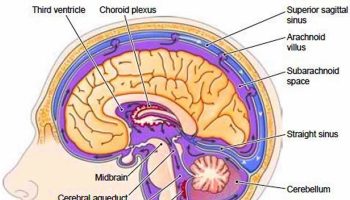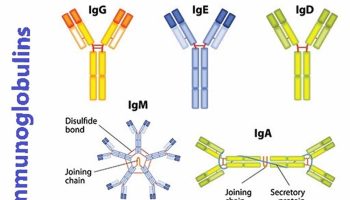Contents
- What is colon cleanse
- The concept behind colon cleanse
- Does colon cleanse have health benefits ?
- Is colon cleanse safe ?
- Colon hydrotherapy FAQ
- How do I prepare for a colon cleanse ?
- What if I am constipated ?
- What does a colon cleanse feel like ?
- Isn’t it embarrassing ?
- Is there any mess or smell ?
- How safe is colon cleanse ?
- Does colon cleanse hurt ?
- How do I know if a colon cleanse will help me ?
- What can I expect afterwards ?
- Does a colon cleanse wash away ‘good bacteria’ ?
- How long does a colon cleanse take ?
- What kind of water is used for colon cleanse hydrotherapy ?
- Will it be okay to eat after having a colon cleanse ?
- How many treatments will I need ?
- How much does a colon cleanse cost ?
- Are there any after effects ?
- Are there circumstances in which I shouldn’t have a colon cleanse ?
- Can I have a colonic during my period ?
- I’m pregnant. Can I still have a colon cleanse ?
- Summary
What is colon cleanse
Colon cleanse also called colonic irrigation is a complementary therapy. It involves flushing waste material out of the bowel (large intestine) using water 1. The procedure is also known as colonic hydrotherapy. Colon cleanse is carried out by colonic hydrotherapists who may be registered with the Association of Registered Colon Hydrotherapists 2.
During the procedure, you will lie on your side while warm water is passed into your bowel through a tube inserted into your rectum (back passage). Warm filtered water is introduced into your colon through a small tube called a speculum that is gently inserted about an inch and a half into your rectum. As the warm water enters, you’ll feel a fullness as your colon fills up, then a relaxing feeling as it empties. The water pressure and temperature are carefully controlled and all waste is drained away discreetly in a closed system with absolutely no mess or odors.
This filling and emptying is repeated several times and massage is applied to your abdomen. Unlike an enema, colonic hydrotherapy reaches the whole length of your large intestine, with the massage from your therapist helping to ensure you benefit from an effective cleanse.
The water circulates through your colon, and waste products are passed out of your body through the tube.
The procedure lasts about 30-45 minutes, during which around 60 liters of water is introduced into the rectum. Herbal infusions are sometimes added to the water.
The concept behind colon cleanse
It is well known that in antiquity medicine often resorted to the use of enemas and rectoclysis to “free” the body of the “humors” and “poisons” believed to originate in the intestine and to cause diseases in many other organs. Indeed, an Egyptian papyrus dating back to the XVI century B.C. provides evidence of the belief that toxic substances produced by poorly digested foods could pass through the intestinal lumen and into the blood stream causing disorders even in distant organs. In the early 1900s a British surgeon, Sir William Arbuthnot Lane, was profoundly convinced of this theory: when the contents of the large intestine stagnate, “toxic substances” are more easily absorbed and lead to chronic disorders. As a result, he performed extensive colon cleanse on patients with a wide range of disorders: from arthritis to hypertension and skin pathologies. In those same years, the British Medical Journal published an article that concluded by saying that fecal stasis altered colon bacterial flora, thus favoring bacteria capable of toxin production (either anaerobes or coliforms) with systemic effects 3.
The concept of “autointoxication” as a cause of disease was later abandoned as modern medical research gained sway and did not produce proof supporting this theory 4. Despite harsh criticism from the scientific community, the practice of colon cleanse has remained deeply rooted and the use of various instruments—from simple rectoclysis that operates by force of gravity to complex (and costly) colon hydrotherapy machinery—has continued to be widely accepted. Today’s therapists use hygienic closed systems, with clean, filtered water to cleanse the colon quickly and easily, with no fuss, no mess and no smell, making modern colon hydrotherapy safer and more convenient than ever before.
While the treatment has taken many forms over the centuries, the essence of the therapy has remained the same – a gentle wash out of the colon or large intestine, using warm water to remove waste matter, rehydrate and exercise the bowel.
Moreover, some controlled studies have appeared comparing the effect of irrigation and lavage with conventional treatment approaches, in particular, for constipation and fecal incontinence which reap the greatest benefits both in terms of symptoms and quality of life 5, 6, 7. These studies have used different irrigation methods and do not reflect an “impeccable” experimental design. However, beyond a shadow of a doubt, they do provide enough data to assert, as a recent Dutch study has done, that colonic irrigation is an effective treatment for untreatable defecation disorders 8 and for patients with functional bowel disorders, as another paper concludes 9. In one study of 57 patients with severe constipation, an immune activation condition was reflected by numerous indicators including elevated counts of CD3, CD4 and CD25, increased spontaneous proliferation of lymphocytes and increased ovoalbumin. Such activation tended to normalize when constipation was relieved with laxatives. The authors concluded that constipation is associated with striking changes in fecal flora, intestinal permeability and systemic immune response 10.
Why have people have colon cleanse ?
People have colon hydrotherapy for a wide range of reasons. Some are looking for relief from the symptoms of IBS (irritable bowel syndrome) and other gastro-intestinal problems such as bloating, constipation or diarrhea, while others simply want to maintain and improve their digestive health and enjoy the fresh, light feeling and enhanced energy levels that often comes from the treatment.
Unhealthy modern lifestyles
According to the Association of Registered Colon Hydrotherapists (ARCH) 2 colon cleanse can help your body, helping to return your digestive system to a more natural, healthy state. The gentle flow of water works in two ways: firstly it cleans out waste matter in the colon, and secondly it stimulates the natural nerve and muscle action of the bowels to encourage proper bowel function.
Unlike an enema, colon hydrotherapy, combined with gentle abdominal massage from your therapist, can reach the full length of the large intestine, ensuring a thorough cleanse and the maximum benefit 11.
According to the Association of Registered Colon Hydrotherapists 11 colon cleanse gives many people a sensation of overall well-being and energy.
What’s more, since your digestive system is closely linked with the rest of your body’s functions, the therapy may also help you with headaches, allergies and acne, and improve mental and physical sluggishness 11.
Does colon cleanse have health benefits ?
Despite many people having colon cleanse, there is no scientific evidence to suggest there are any health benefits associated with the procedure. In 2009, researchers in America analyzed studies about the procedure, but found no strong scientific evidence to support it 12.
Colonic irrigation can be used effectively to treat defecation disorders when other conservative treatments fail or in addition to unsuccessful or partially successful surgical treatment 13. Briel et al. 14 found a success rate of 38% of retrograde colonic irrigation for fecal incontinence and a significant improvement in quality of life. Recently, another study reported a success rate of 41% in patients with fecal incontinence and 65% in patients with constipation 13. The success rate is based on patient satisfaction. Although patient satisfaction is the primary goal of treatment, it is a subjective measure. In future research, this should be combined with objective measures such as validated quality of life questionnaires in a prospective study design.
Antegrade colonic irrigation is especially known for the treatment of evacuation disorders in small children and can be performed through an appendico-cecostomy (MACE) or a cecostomy button 15. Alternative enteral access is a sigmoid tube or transverse colonic conduit for patients with a left colonic evacuation disorder 16. The most common problems of MACE are stoma stenosis and leakage 17. In this study 18, four patients performed antegrade irrigation via a colostomy or a MACE with good results. O’Bichere et al. 19 performed an experimental study investigating the effect of retrograde vs antegrade colonic irrigation in pigs. That study demonstrates that colonic emptying is more efficient with antegrade irrigation compared to retrograde irrigation 19. Although a reasonable success rate can be achieved with antegrade irrigation (64–85%) 20, retrograde colonic irrigation is preferred above antegrade irrigation as initial treatment because of its non-invasive nature and benign complications. Retrograde colonic irrigation is performed through the anorectum or via a colostomy.
In a study 21 involving 23 children (2-15 years of age) with the following: spina bifida (n = 11), anorectal anomaly (n = 6), Hirschsprung’s (n = 1), and other complex anomalies (n = 5). Median follow-up is 2 (0.7–3.4) years. Diagnoses include sixteen (70%) patients had associated anomalies (those anomalies were not specified). Twelve (52%) had constipation and overflow soiling, and 11 (48%) had fecal incontinence. Twenty (87%) had associated urinary wetting. Sixteen (70%) children used alternate-day irrigations, 4 (17%) daily irrigations, and 3 (13%) every third-day irrigations. Nine (39%) patients were taking oral laxatives. Sixteen (70%) reported to be clean and 3 (13%) reported a significant improvement, although were having occasional soiling. Four patients (17%) did not tolerate the irrigations and underwent subsequent colostomy formation for intractable soiling. That study 21 showed transanal colonic irrigation is an effective method of managing fecal soiling in childhood. Majority (83%) of children achieve social fecal continence or a significant improvement with occasional soiling 21. This was accompanied by high parental satisfaction. Transanal colonic irrigation is a valid alternative to invasive surgical procedures and should be considered the first line of treatment for bowel management in children with soiling where simple pharmacological maneuvers failed to be effective.
Another study in a group of patients with “neurogenic bowel” resulting from spinal cord injury 22 where 87 patients with spinal cord injury with neurogenic bowel dysfunction were randomly assigned to either transanal irrigation (42 patients) or conservative bowel management (45 patients) for a 10-week trial period. Compared with conservative bowel management, transanal irrigation improves constipation, fecal incontinence, and symptom-related quality of life 22. These patients have been using this technique for a few years now, some every other day and some every 3 days maximum. It is not unusual to find that, even after a single colon hydrotherapy session, the patient starts to improve, achieving evacuation that is satisfactory both in terms of frequency and completeness. This may be because, following treatment, the patient appears to better handle the administration of fiber, symbiotics and/or macrogol products which previously had caused abdominal discomfort and were thus taken only sporadically.
Is colon cleanse safe ?
The Association of Registered Colon Hydrotherapists recommends that you should not have colon cleanse if you have 23:
- Pregnancy
- Uncontrolled high blood pressure
- Severe hemorrhoids
- Severe anaemia
- Rectal bleeding
- Heart disease
- Strangulated abdominal or inguinal hernias
- Fissures or fistulas
- Kidney failure / insuffiency
- Bowel or rectal cancer
- Liver disease
- Colitis / Crohns disease
- GI hemorrhage / perforation.
Colon hydrotherapy FAQ
It is perfectly normal to be a little apprehensive about colon hydrotherapy at first, and naturally you’ll have some questions about the treatment. Your ARCH therapist will be happy to talk you through any concerns you have.
Here are some of the more frequently asked questions about colon hydrotherapy 24:
How do I prepare for a colon cleanse ?
You don’t need to do anything special before your treatment, but for your own comfort you should avoid a heavy meal or drinking a lot immediately before your appointment. You should also avoid alcohol.
What if I am constipated ?
If you are particularly constipated, you should ask your therapist for advice on what you can do beforehand to maximize the benefits of your treatment.
What does a colon cleanse feel like ?
Most people find the procedure to be quite relaxing, with no discomfort. The colon fills and empties regularly as part of its normal function, so the treatment is nothing new. You may feel varying sensations of fullness and movement in your abdomen throughout the treatment.
Isn’t it embarrassing ?
Your therapy will take place in a private treatment room by a trained therapist who understands the sensitivity of the procedure. It is perfectly normal to be a little embarrassed, but your therapist will completely understand and will try to put you at your ease. Once the tube has been inserted, you’ll remain covered for the rest of the treatment.
Is there any mess or smell ?
None whatsoever. Modern colon hydrotherapy equipment forms a sealed system that carries away all the waste cleanly and hygienically.
How safe is colon cleanse ?
Your safety is of paramount importance. Modern equipment constantly maintains the water temperature and pressure within safe limits, and ARCH standards insist that a new, single use, disposable speculum is used for each treatment.
Does colon cleanse hurt ?
It may feel a little strange as the small tube is inserted, and you may have a natural urge to squeeze it out again, but this passes quickly. Your therapist will then closely control the filling and emptying to ensure that you remain comfortable at all times. Occasionally the colon may contract during the treatment, giving a cramping sensation but this is easily tolerated and passes as soon as the bowel empties again.
How do I know if a colon cleanse will help me ?
Everyone is different and colonics help some people more than others. ARCH members do not make any promises or wild claims for our treatments. The best way to find out if they will benefit you is to book a treatment and see for yourself.
What can I expect afterwards ?
Generally speaking as soon as your treatment is completed you can carry on with your normal routine. You may experience an increase in bowel movements over the first few hours, to eliminate any remaining water or waste. This is perfectly normal and shouldn’t involve any undue urgency or discomfort. After that you may find that you don’t need to go to the toilet for a while, perhaps as long as a few days, as your bowels have been emptied.
Does a colon cleanse wash away ‘good bacteria’ ?
Most of the important bowel bacteria are present on the bowel wall and are not removed during colon hydrotherapy. Since these good bacteria breed best in a balanced environment, a colonic cleanse may actually improve their environment and increase their numbers. However, if your therapist thinks that your bowel bacteria may be out of balance, they may suggest a pro-biotic after your treatment.
How long does a colon cleanse take ?
The treatment itself takes up to 45 minutes, so with changing time, you’ll need to allow at least an hour. Your first treatment will normally take longer as your therapist will need to review your medical history and assess your current bowel health before proceeding with your therapy.
What kind of water is used for colon cleanse hydrotherapy ?
ARCH use drinking water from the mains supply. This is then thoroughly filtered for your complete safety and warmed to body temperature or just above for your comfort.
Will it be okay to eat after having a colon cleanse ?
After a colonic, you can continue with your normal daily routine, including eating and drinking. However, you should avoid any foods that you know irritate or upset your stomach and avoid alcohol. Your therapist will offer advice on healthy eating options to help you maintain the benefits you have gained from the treatment.
How many treatments will I need ?
This depends on your reason for having a colonic in the first place, as well as how successful the treatment was. Your therapist will advise you on whether you need further treatments, as well as when and how often you need to return. Many therapists offer reduced rates for a course of treatments.
How much does a colon cleanse cost ?
This varies depending on where you live and who you see. You can find therapists in your area by using our online find a therapist function.
Are there any after effects ?
Most people feel great after a colonic, with renewed energy and vitality. However, occasionally some clients may feel a little under the weather for around 24 hours. If you have any concerns, or you feel unwell, speak to your therapist who will be able to explain your body’s reactions to you.
Are there circumstances in which I shouldn’t have a colon cleanse ?
Yes, certain medical conditions would prevent you from having the treatment. If you are in any doubt, please feel free to call ARCH for professional advice.
Can I have a colonic during my period ?
Yes. There is no reason why the procedure would not be successful.
I’m pregnant. Can I still have a colon cleanse ?
No. ARCH therapists do not treat pregnant women during any term of their pregnancy.
Summary
In summary, the regular use of colon cleaning techniques could, in individuals with serious intestinal motility problems (e.g. people with spinal cord injury & neurogenic bowel, children with constipation/fecal incontinence, functional bowel disorders like irritable bowel syndrome), be an effective part of the stability of intestinal microbiota. Recent observations definitely support this idea that water use does not create imbalances, but rather improves dysbiosis 25. However, more rigorous studies must be performed on colon cleanse short- and long-term effectiveness in view of a recent systematic review 12, where the investigators concluded that there are no methodologically rigorous controlled trials of colonic cleansing to support the practice for general health promotion. Conversely, there are multiple case reports and case series that describe the adverse effects of colonic cleansing. The practice of colonic cleansing to improve or promote general health is not supported in the published literature and cannot be recommended at this time 12.
- https://www.nhs.uk/chq/pages/1997.aspx[↩]
- http://www.colonic-association.org/[↩][↩]
- Ledingham JG (1913) The bacteriologic evidence of intestinal intoxication. Br Med J 1:821–823. https://www.ncbi.nlm.nih.gov/pmc/articles/PMC2299086/pdf/brmedj07279-0018.pdf[↩]
- Irrigation, lavage, colonic hydrotherapy: from beauty center to clinic? Bazzocchi, G. & Giuberti, R. Tech Coloproctol (2017) 21: 1. https://doi.org/10.1007/s10151-016-1576-6[↩]
- Taffinder NJ, Tan E, Webb IG, McDonald PJ (2004) Retrograde commercial colonic hydrotherapy. Colorectal Dis 6:258–260. https://www.ncbi.nlm.nih.gov/pubmed/15206969[↩]
- Crawshaw AP, Pigott L, Potter MA, Bartolo DCC (2004) A retrospective evaluation of rectal irrigation in the treatment of disorders of faecal continence. Colorectal Dis 6:185–190. https://www.ncbi.nlm.nih.gov/pubmed/15109384[↩]
- Gosselink MP, Darby M, Zimmerman DDE et al (2004) Long-term follow up of retrograde colonic irrigation for defaecation disturbances. Colorectal Dis 7:65–69[↩]
- Koch SMP, Melenhorst J, van Gemert WG, Baeten CGMI (2008) Prospective study of colonic irrigation for the treatment of defaecation disorders. Br J Surg 95:1273–1279. https://www.ncbi.nlm.nih.gov/pubmed/18720454[↩]
- Chan DS, Saklani A, Shah PR, Lewis M, Haray PN (2012) Rectal irrigation: a useful tool in the armamentarium for functional bowel disorders. Colorectal Dis 14:748–752. https://www.ncbi.nlm.nih.gov/pubmed/21883812[↩]
- Khalif IL, Quigley EMM, Konovitch EA, Maximova ID (2005) Alterations in the colonic flora and intestinal permeability and evidence of immune activation in chronic constipation. Dig Liv Dis 37:838–849.[↩]
- http://www.colonic-association.org/about-colon-hydrotherapy/why-have-a-colonic/[↩][↩][↩]
- Acosta RD, Cash BD (2009) Clinical effects of colonic clearing for general health promotion: a systematic review. Am J Gastroenterol 104:2830–2836. https://www.nature.com/articles/ajg2009494[↩][↩][↩]
- Long-term follow-up of retrograde colonic irrigation for defaecation disturbances. Gosselink MP, Darby M, Zimmerman DD, Smits AA, van Kessel I, Hop WC, Briel JW, Schouten WR. Colorectal Dis. 2005 Jan; 7(1):65-9. https://www.ncbi.nlm.nih.gov/pubmed/15606588/[↩][↩]
- Clinical value of colonic irrigation in patients with continence disturbances. Briel JW, Schouten WR, Vlot EA, Smits S, van Kessel I. Dis Colon Rectum. 1997 Jul; 40(7):802-5. https://www.ncbi.nlm.nih.gov/pubmed/9221856/[↩]
- MACE or caecostomy button for idiopathic constipation in children: a comparison of complications and outcomes. Cascio S, Flett ME, De la Hunt M, Barrett AM, Jaffray B. Pediatr Surg Int. 2004 Jul; 20(7):484-7. https://www.ncbi.nlm.nih.gov/pubmed/15221360[↩]
- Sigmoid irrigation tube for the management of chronic evacuation disorders. Gauderer MW, Decou JM, Boyle JT. J Pediatr Surg. 2002 Mar; 37(3):348-51. https://www.ncbi.nlm.nih.gov/pubmed/11877646/[↩]
- Control of fecal incontinence: continued success with the Malone procedure. Schell SR, Toogood GJ, Dudley NE. Surgery. 1997 Sep; 122(3):626-31. https://www.ncbi.nlm.nih.gov/pubmed/9308622/[↩]
- Koch SM, Uludağ Ö, El Naggar K, van Gemert WG, Baeten CG. Colonic irrigation for defecation disorders after dynamic graciloplasty. International Journal of Colorectal Disease. 2008;23(2):195-200. doi:10.1007/s00384-007-0375-y. https://www.ncbi.nlm.nih.gov/pmc/articles/PMC2134973/[↩]
- O’Bichere A, Sibbons P, Dore C et al (2002) Experimental study of faecal continence and colostomy irrigation. Br J Surg 87:902–908. https://www.ncbi.nlm.nih.gov/pubmed/10931026[↩][↩]
- Cascio S, Flett ME, De la Hunt M et al (2004) MACE or caecostomy button for idiopathic constipation in children: a comparison of complications and outcomes. Pediatr Surg Int 20:484–487. https://www.ncbi.nlm.nih.gov/pubmed/15221360[↩]
- Use of Peristeen® transanal colonic irrigation for bowel management in children: A single-center experience. Pacilli, Maurizio et al. Journal of Pediatric Surgery, Volume 49, Issue 2, 269-272. http://www.jpedsurg.org/article/S0022-3468(13)00896-8/fulltext[↩][↩][↩]
- Christensen P, Bazzocchi G, Coggrave M et al (2006) Treatment of fecal incontinence and constipation in patients with spinal cord injury: a prospective, randomized, controlled, multicenter trial of transanal irrigation vs conservative bowel management. Gastroenterology 131:738–747. https://www.ncbi.nlm.nih.gov/pubmed/16952543[↩][↩]
- http://www.colonic-association.org/about-colon-hydrotherapy/who-are-colonics-for/[↩]
- http://www.colonic-association.org/about-colon-hydrotherapy/colon-hydrotherapy-faq/[↩]
- Uchiyama-Tanaka Y (2012) The influence of colonic irrigation on human intestinal microbiota. In: Brzozowski T (ed) New advances in the basic and clinical gastroenterology. ISBN: 978-953-51-0521-3.[↩]

